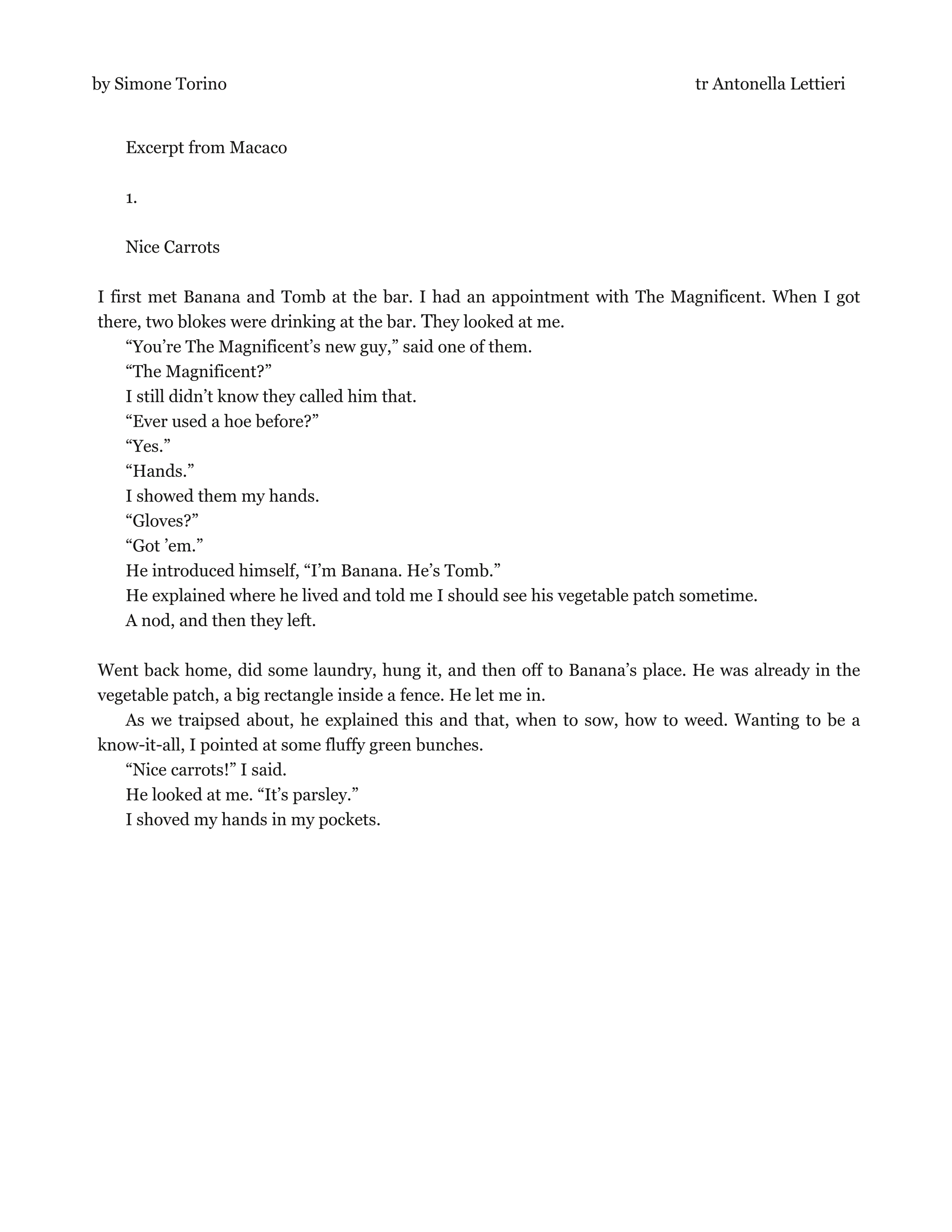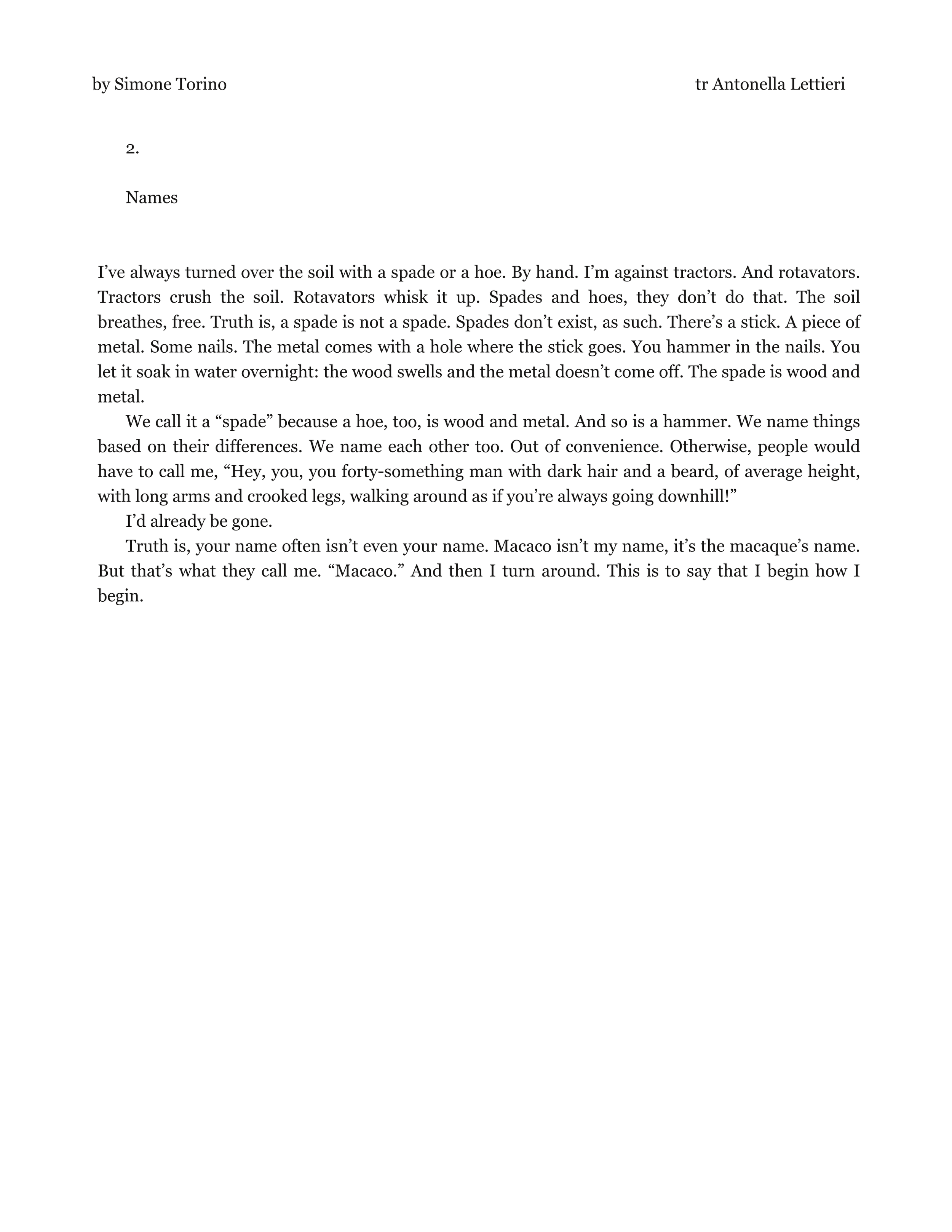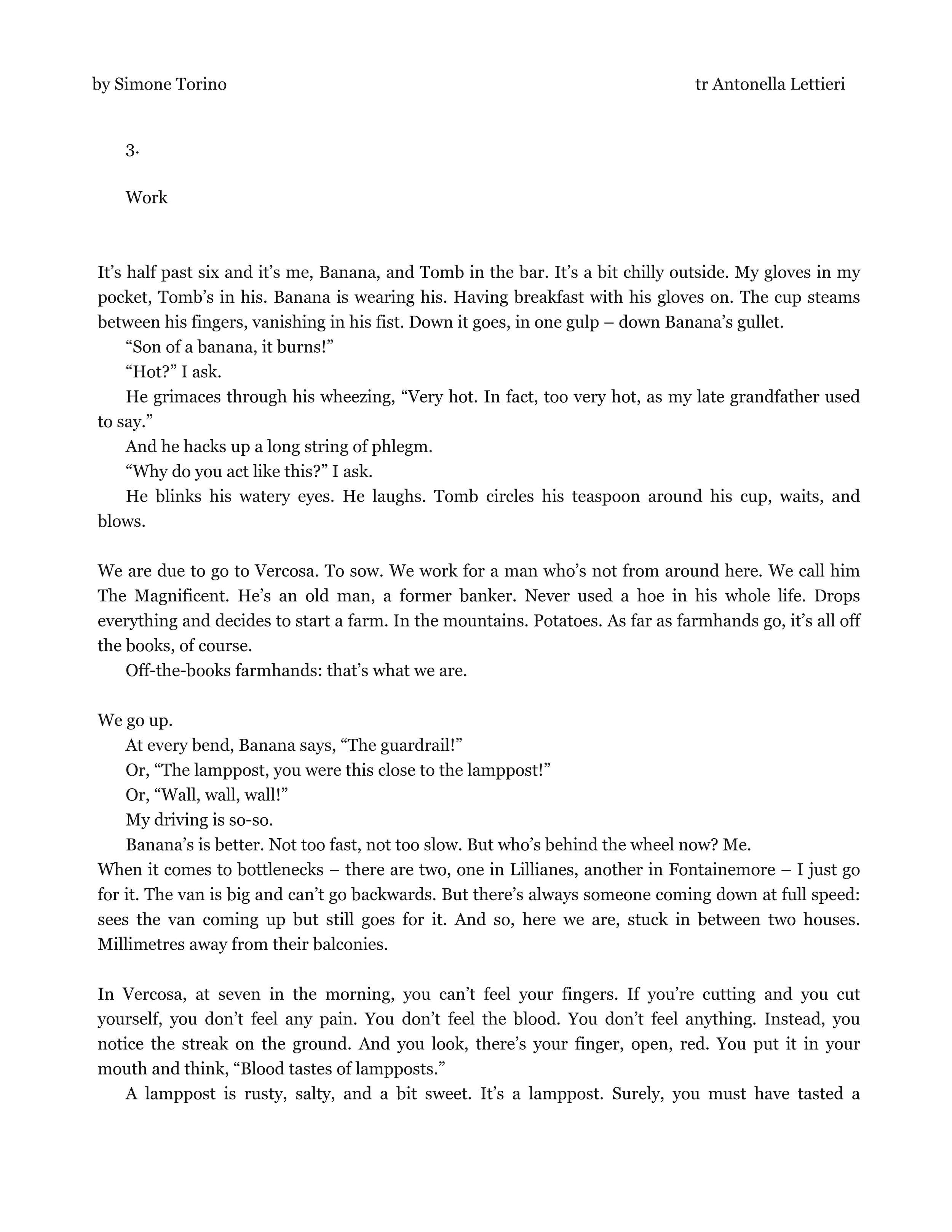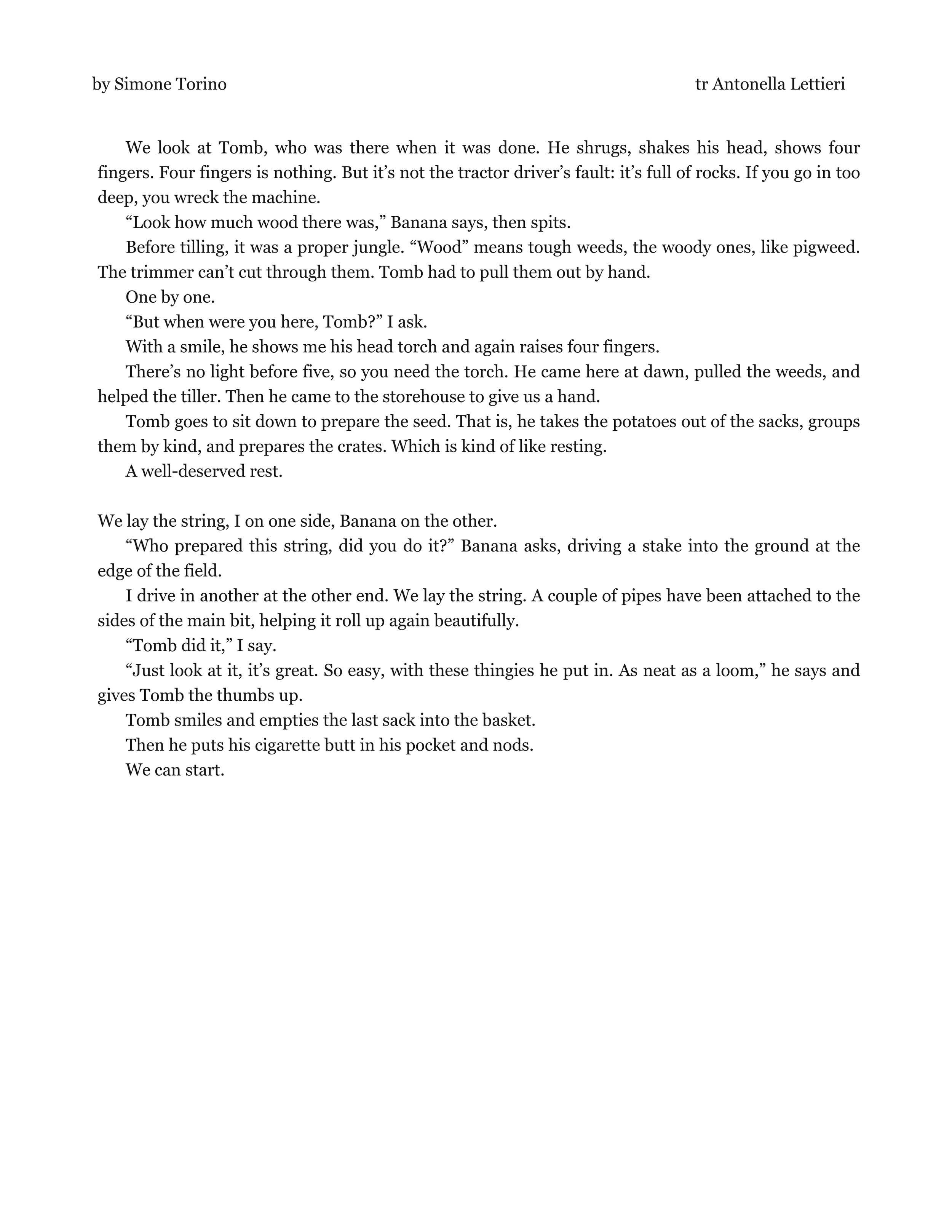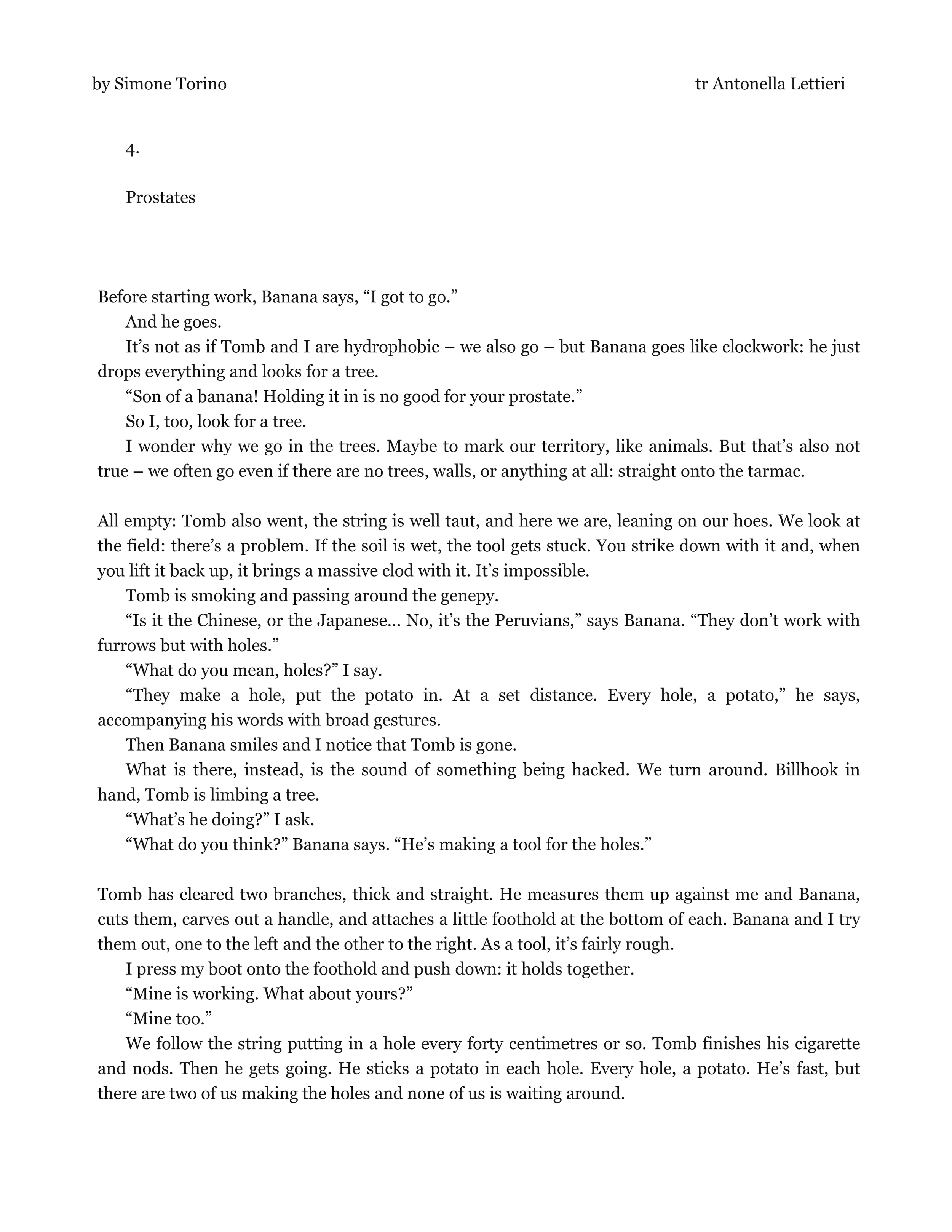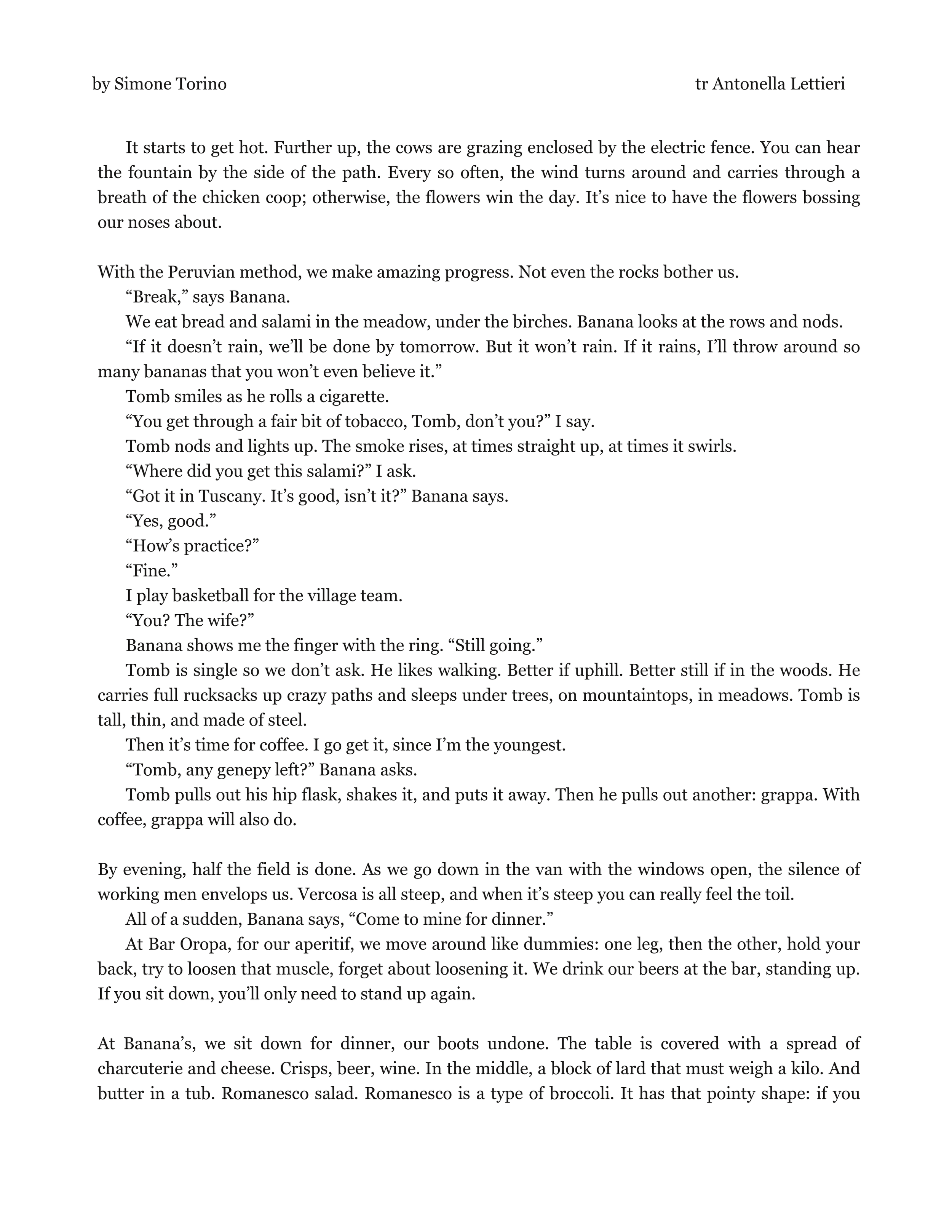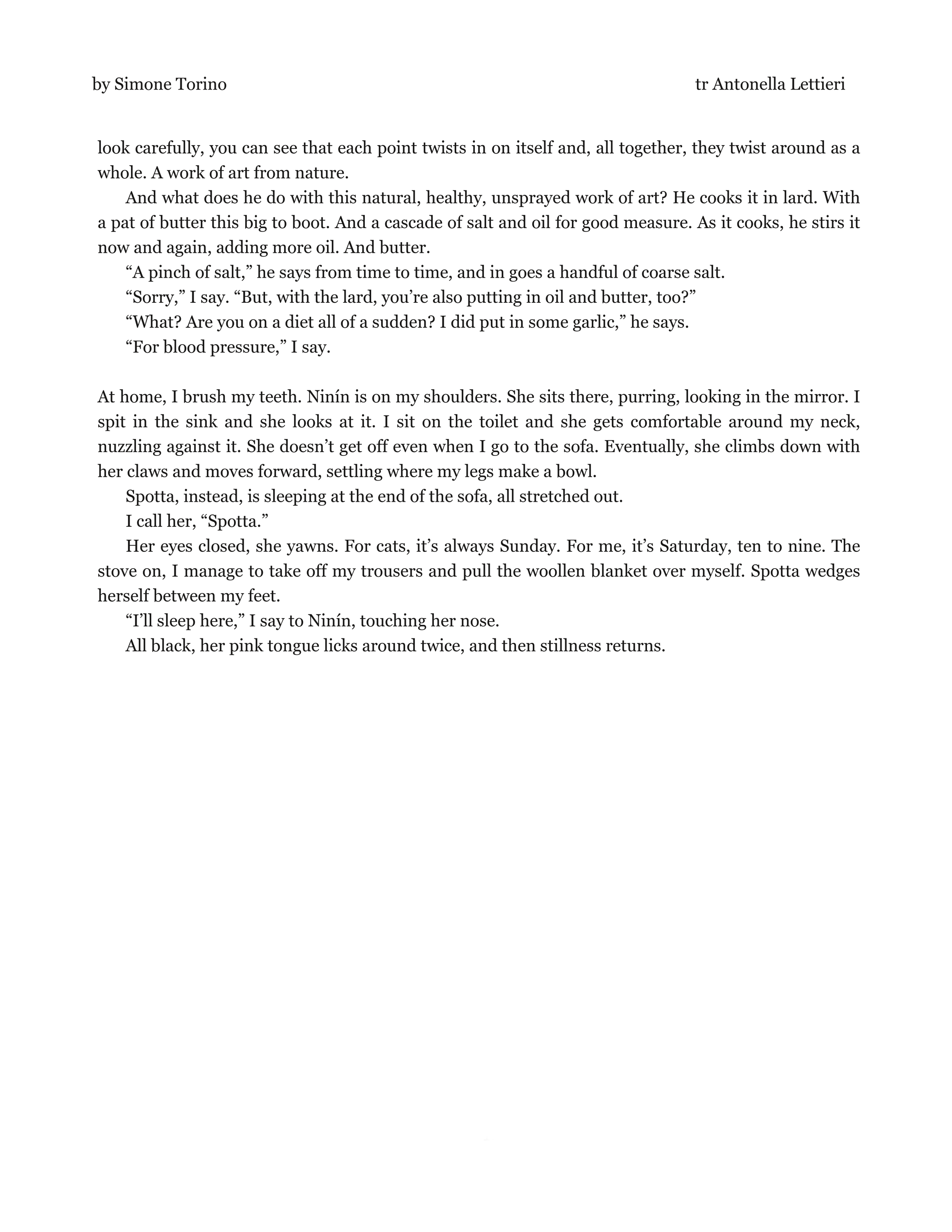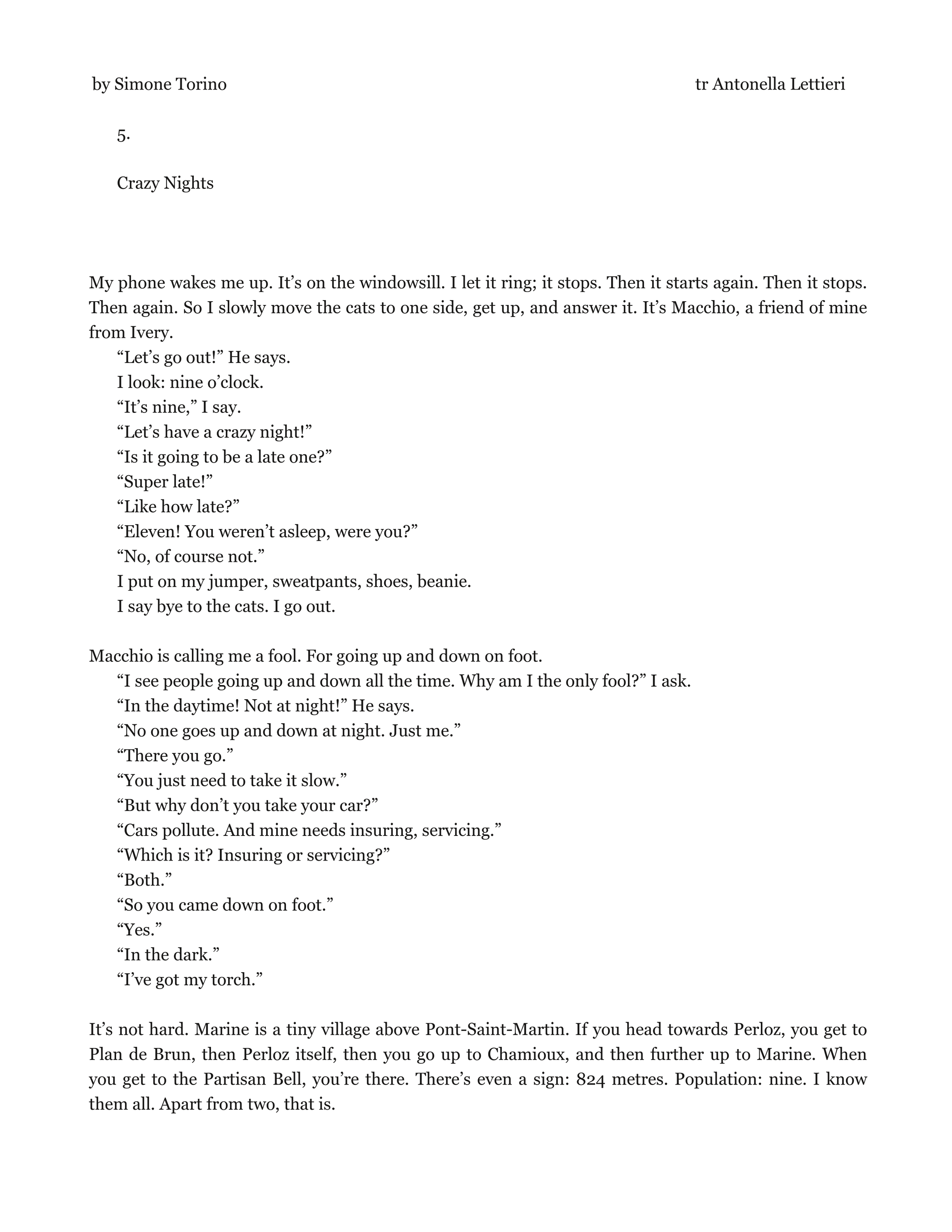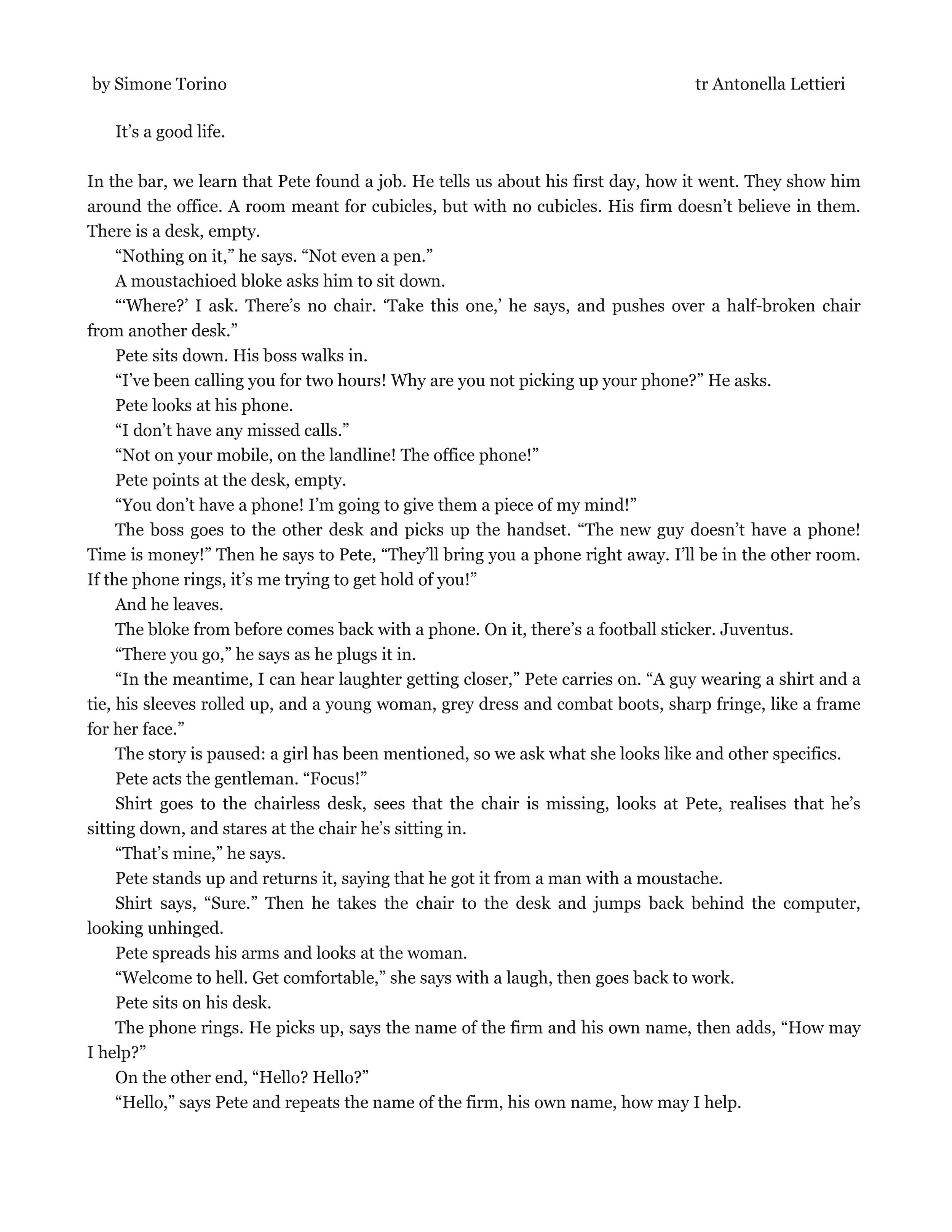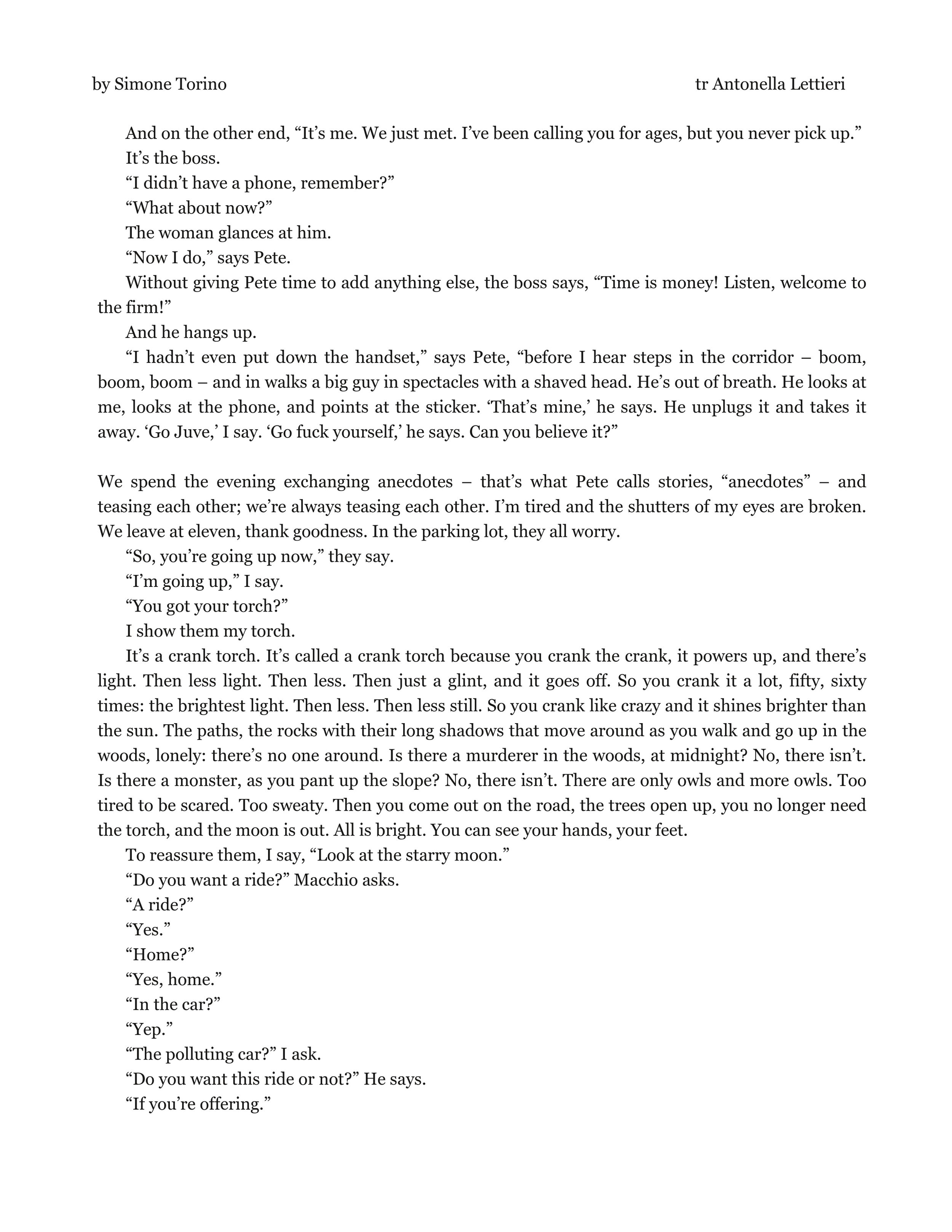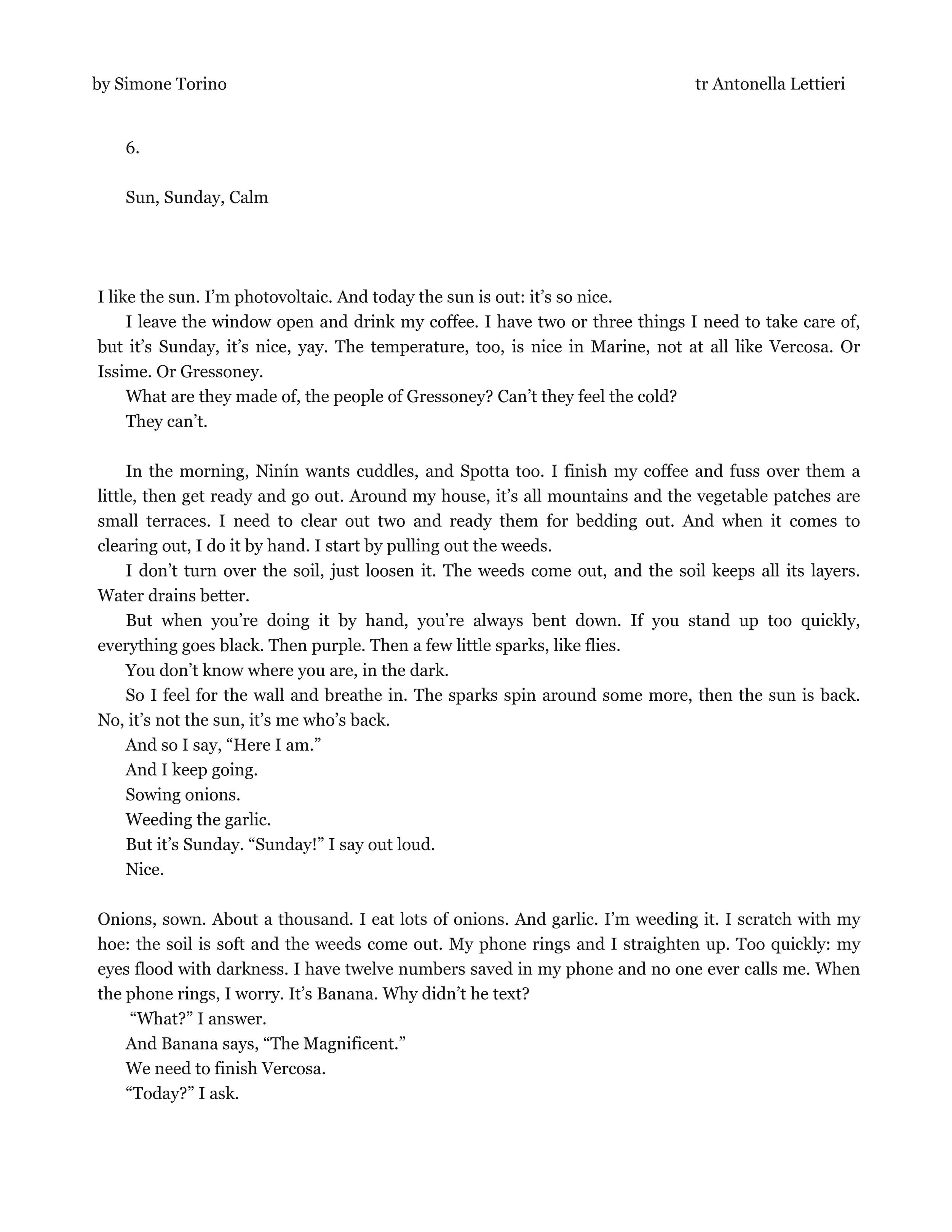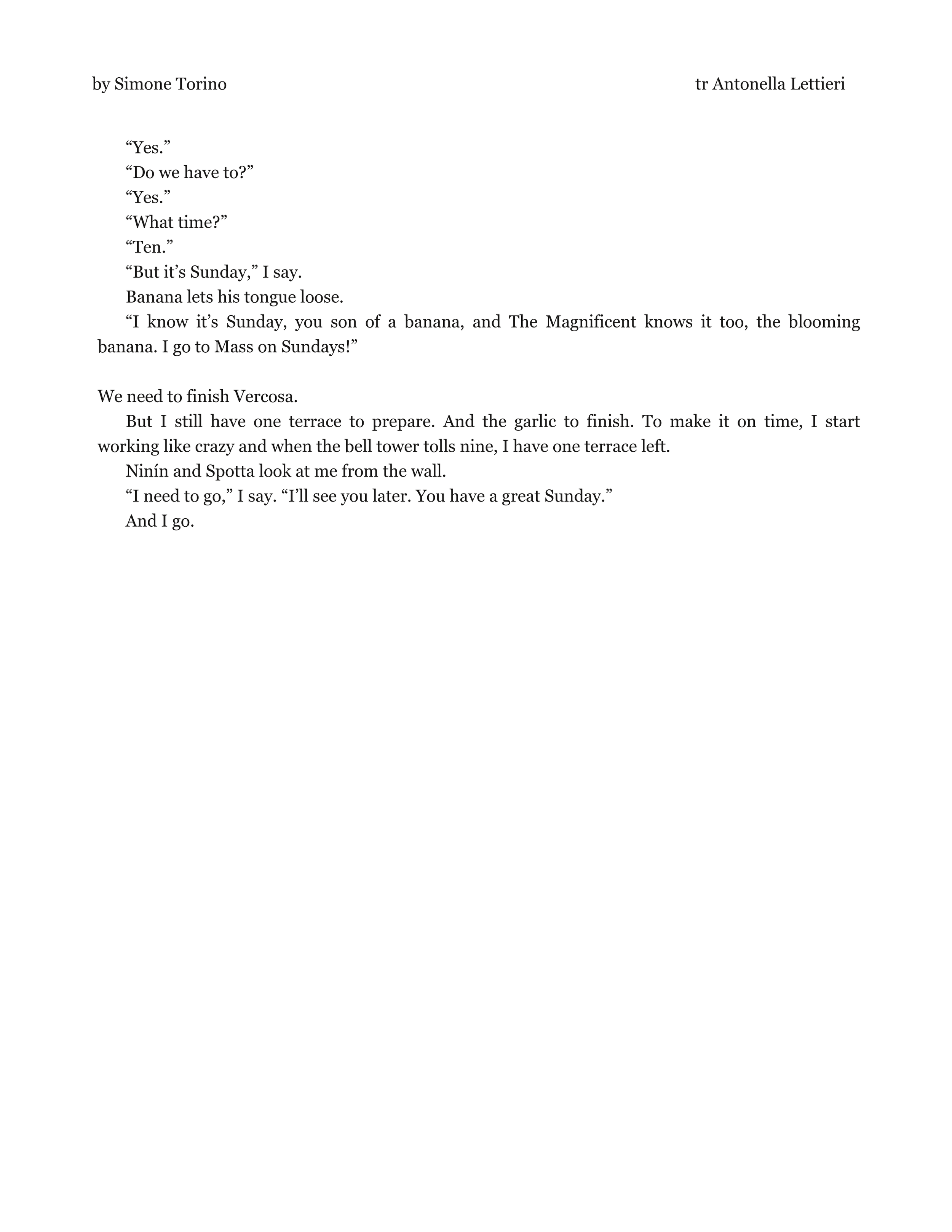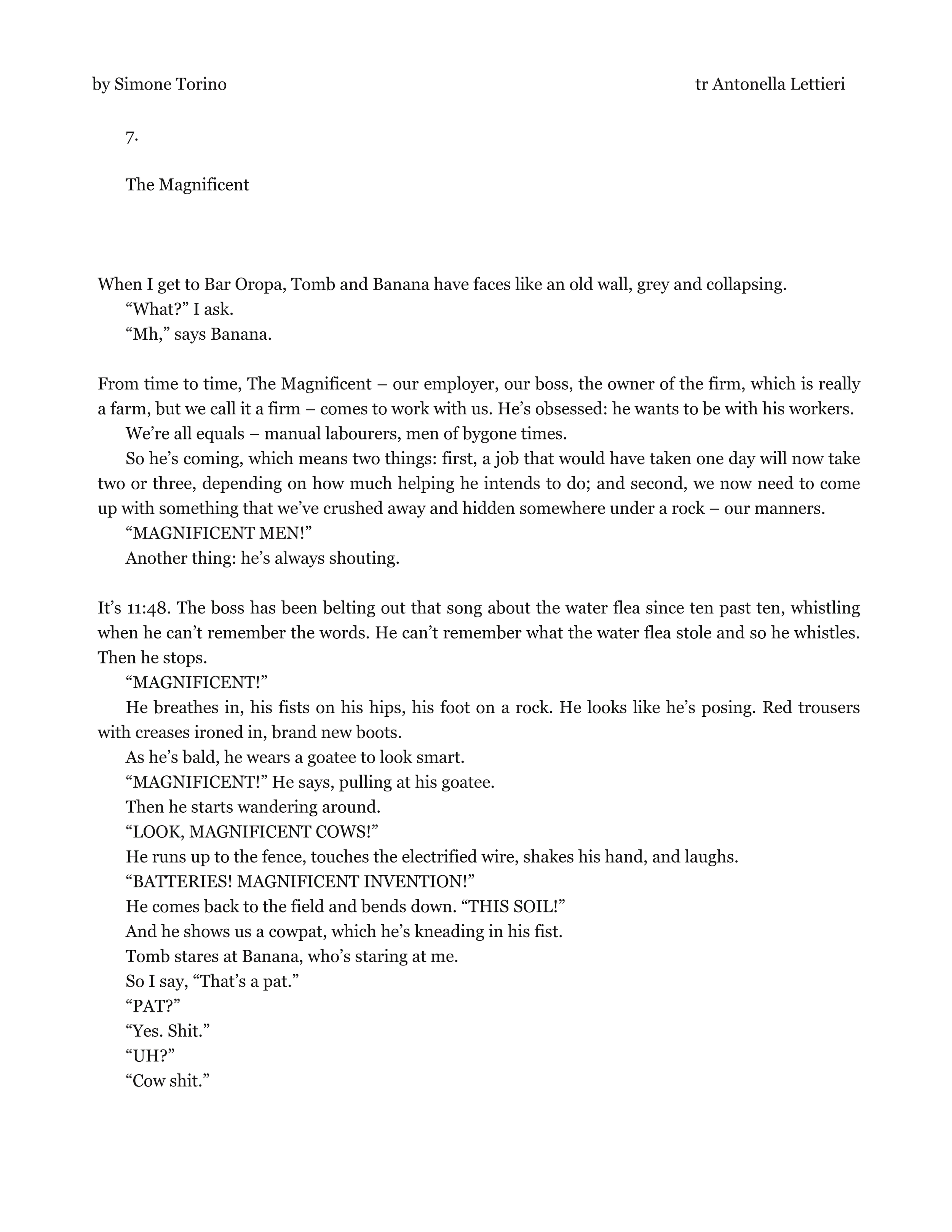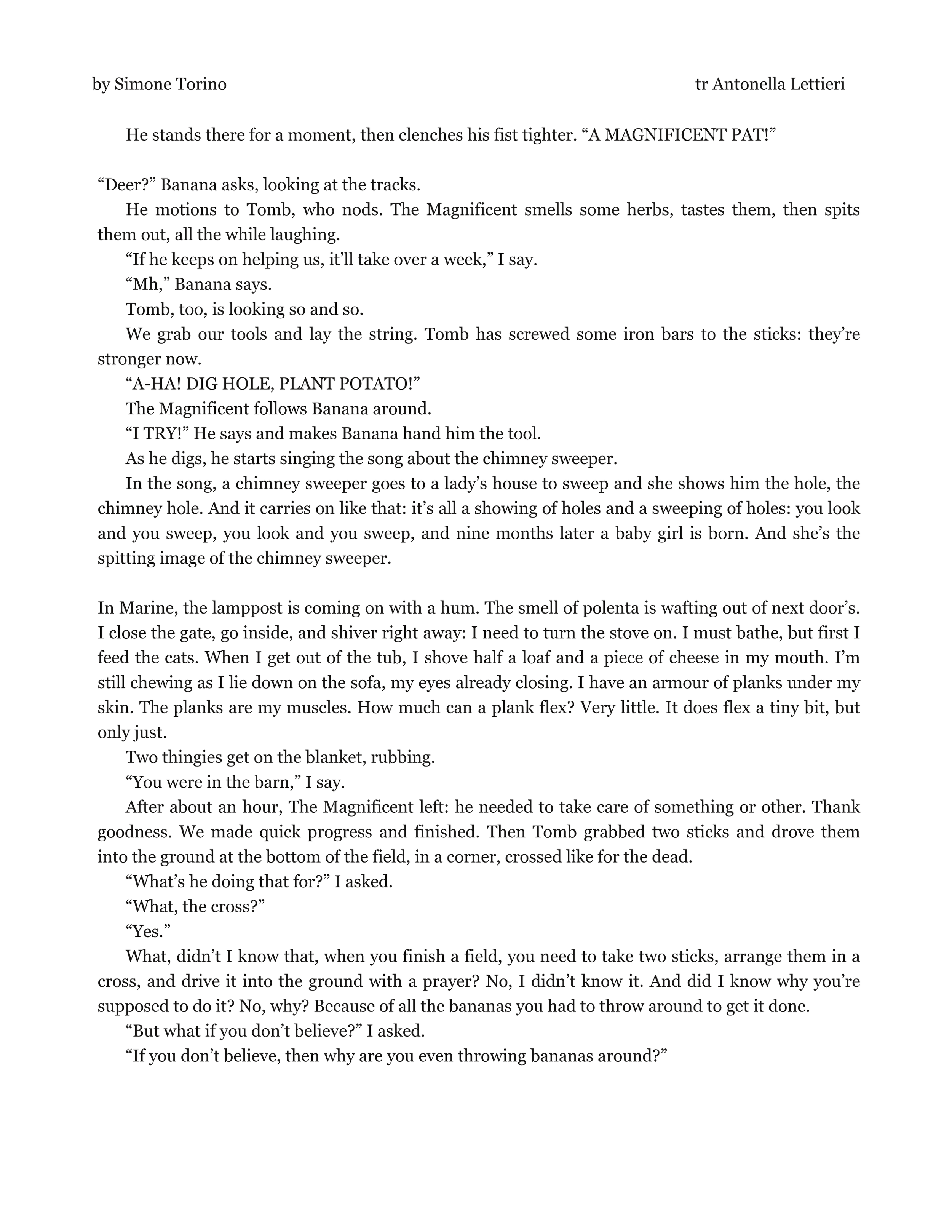Author’s Bio:
Simone Torino was born in Aosta in 1979. Over the years, he has held several jobs, ranging from farmhand to postman, all while continuing to write. Some of his short stories are available online, while others have been published in anthologies. Macaco (Einaudi, 2025) is his first novel and won the Italo Calvino Prize in 2024, which is awarded to unpublished debuts.
Translator’s Bio:
Antonella Lettieri is a translator working between English and Italian. Her translations include Maria Grazia Calandrone’s Your Little Matter (Foundry Editions, 2024), Roberta Recchia’s All That Is Left of Life (Dialogue Books, 2025), and Matteo Melchiorre’s The Duke (Foundry Editions, 2025). She was the National Centre for Writing Emerging Translator Mentee for Italian in 2023 and won the John Dryden Translation Competition in the same year. Your Little Matter was granted the 2024 PEN Grant for the English Translation of Italian Literature. Her work has also appeared in Asymptote, The White Review Writing in Translation Anthology, The Southern Review, and La Piccioletta Barca. More info is available on her website, antonellalettieri.com.


